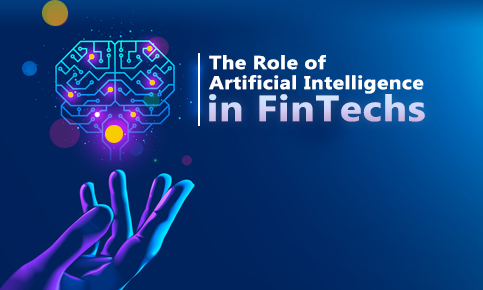Artificial Intelligence, a key element in today’s technology has been around since the 1950s, since the same time when laptops were big machines. In the year 1951, Marvin Mushy and Dean Edmunds built the 1st Artificial neural network that acted as a base to what we call Artificial Intelligence today.
If simply put, Artificial Intelligence is intelligence by machines that enables problem-solving. It works on data fed by humans and improves results by applying methods derived from human intelligence at a beyond-human scale. The seemingly simple technology holds a global market of $10.1 billion by virtue of its usage in different sectors. Together, technologies like Artificial Intelligence, Machine Learning, Neural Net Works, Big Data Analytics, Evolutionary Algorithms and many more have allowed various businesses to analyze, categorize and make use of huge, varied, diverse, and deep datasets.
Formerly, computers were big machines with hundreds of wires that filled a room. Today, with progress in technology, the seemingly hundreds of wires and a big machine has given way to compact systems called laptops. Similarly, technology has also paved the way for a variety of services that we use and build upon today.
Artificial Intelligence has made a big market for itself in the financial world by bringing 70% of Fintechs under its fold. Inorganics Intelligence helps Fintechs in solving human problems by increasing efficiency. Furthermore, it also reduces operational costs and makes internal processes more efficient. It is expected to further reduce operational costs by 22% by 2030 which comes as a big respite to Fintechs as they can maneuver the cost towards customer benefits.
The use of Artificial Intelligence in Fintechs
Artificial Intelligence is a technology that helps Fintechs in several ways to target, choose and reach their preferred audience. With its attribute of accurate decision making, automated customer support, fraud detections, predictive analysis, etc. it assists Fintechs in building their business while preventing risks and fraud associated with it.
Artificial Intelligence has allowed FinTechs to bring down the risk and fraud quotient substantially. As per data, Identity Fraud costed financial institutions $ 16.9 billion in 2019. With the help of Artificial Intelligence, Fintechs decide authenticity and creditworthiness of a borrower thus, improving financial decisions.
A loan is a fundamental element offered in the financial world and Artificial Intelligence can effectively analyze credit scoring systems. Based on an individual’s credit score, it identifies discrepancies and can reduce non-performing loans by 50% while boosting return up to 30% improving loan decision-making. It calculates a score based on information derived from payment history (35%), amounts owed (30%), length of credit history (15%), new credit (10%) and credit mix (10%)Artificial Intelligence is a huge contributor in analyzing data in Payment Programs of Fintechs.
Another interesting aspect of Artificial Intelligence is customer support. Fintechs often don’t have a physical presence unlike traditional banks and therefore, having 24×7 customer support becomes imperative. With the help of Artificial Intelligence, FAQs along with their answers can be fed into the system to assist several customers at the same time.
Artificial Intelligence is also used in a number of other fields like Asset Management, Insurance, Forecasts, Personalization, etc.
By leveraging the benefits of Artificial Intelligence, Fintechs have disrupted the financial world with increasingly unique and customer centric offerings and with time and enhancement of Artificial Intelligence, the dynamicity of Fintechs will also evolve.
